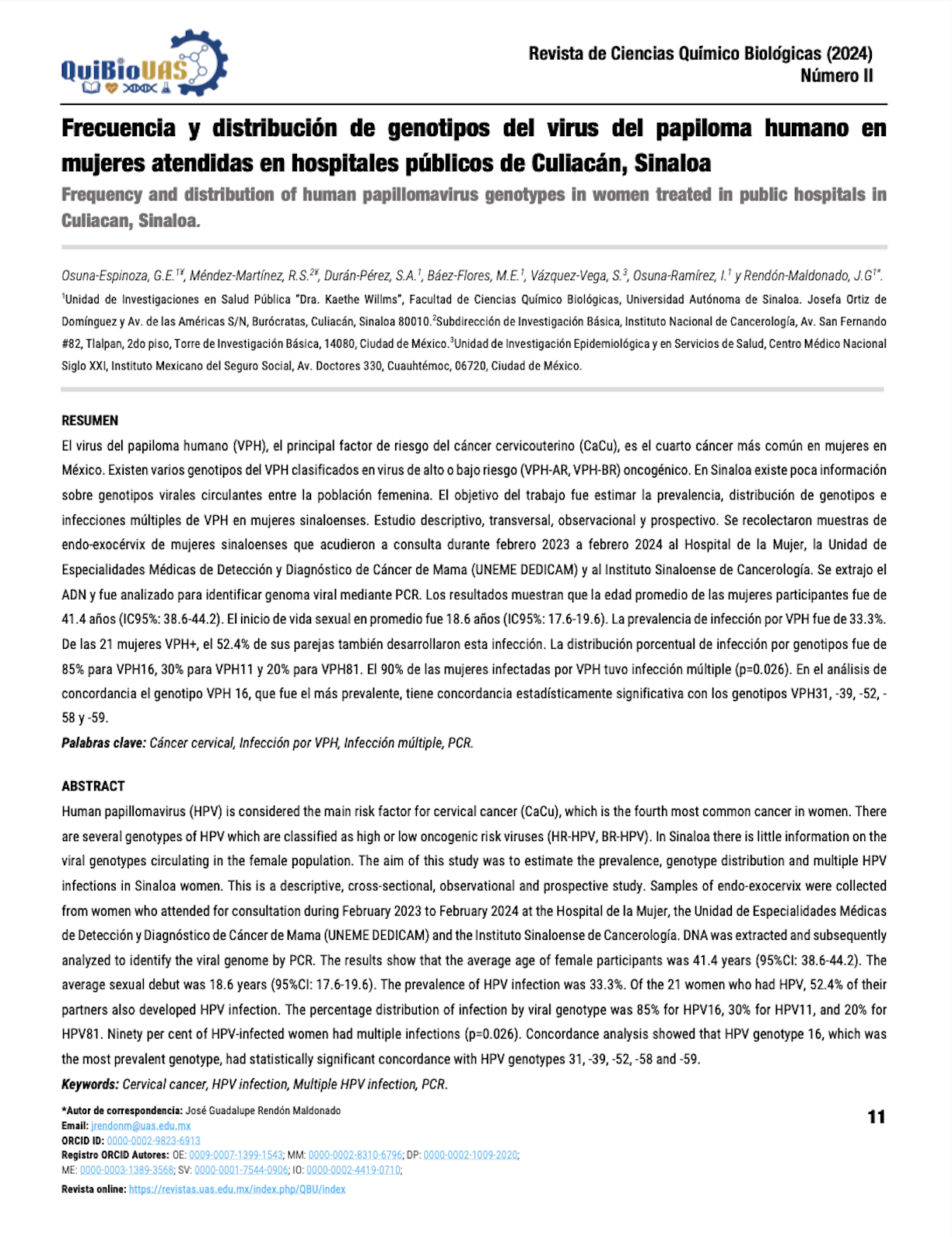Frequency and distribution of genotypes of human papillomavirus in women treated in public hospitals in Culiacan, Sinaloa
Keywords:
Cervical cancer, HPV infection, Multiple HPV infection, PCRAbstract
The human papillomavirus (HPV) is the causative agent of cervical cancer (CaCu), the fourth most common cancer in women in Mexico. There are several genotypes of HPV which are classified as high or low oncogenic risk viruses (HR-HPV, BR-HPV). There is little information in Sinaloa about the viral genotypes circulating among the female population. The objective of this work was to estimate the prevalence and multiple infections of HPV genotypes in women from Sinaloa. This is a descriptive, cross-sectional, observational and prospective study. Participants were selected and sampled during February 2023 to February 2024. DNA from endo-exocervical samples was extracted using the Jena Bioscience kit and the DNA was subsequently analyzed to identify the viral genome by PCR. The results show that the average age of the participating women was 41.4 years (95% CI: 38.6-44.2). The average onset of sexual life was 18.6 years (95% CI: 17.6-19.6), and the average age of menarche was 12.8 years (95% CI: 12.4-13.2). The prevalence of HPV infection was 33.3%. Of the 21 women who had STIs, 52.4% of their partners also developed this infection. The percentage distribution of infection by viral genotypes was 85% for HPV16, 30% for HPV11 and 20% for HPV81. 90% of women infected with HPV had multiple infections (p=0.026). The concordance analysis showed that HPV 16 genotype, which was the most prevalent, has statistically significant agreement with HPV31, -39, -52, -58 and -59 genotypes.
Downloads

Downloads
Published
Issue
Section
Categories
License
Copyright (c) 2024 QUIBIOUAS, Journal of Biological Chemical Sciences

This work is licensed under a Creative Commons Attribution-NoDerivatives 4.0 International License.


